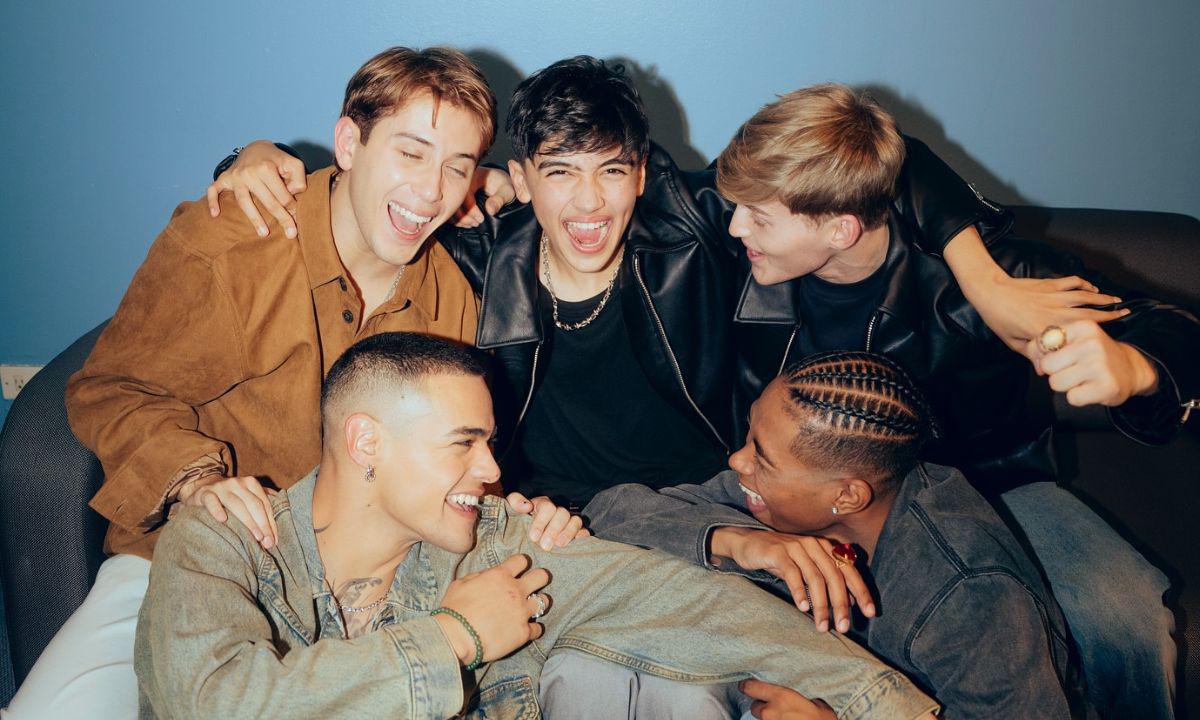HYBE — the South Korean powerhouse behind BTS, SEVENTEEN, and the Weverse fan platform — isn’t just “expanding” into Latin music anymore. It’s building an entire Latin pop machine: scouting talent across the Spanish-speaking world, signing established superstars, producing reality survival shows in Mexico City, opening immersive fan experiences, and launching new labels dedicated to regional Mexican music.
This isn’t a casual crossover collab. It’s HYBE attempting to recreate the K-pop system, in Spanish, for Latin America and the global Latin diaspora. And if it works, the center of gravity in Latin pop might shift permanently.
1. How We Got Here: Seoul → Mexico City → Miami → Los Angeles
HYBE first made its move in late 2023 by acquiring Exile Music — a Latin-focused label connected to Candle Media — and using it as the foundation for a new division called HYBE Latin America. The company placed the hub not in Seoul or New York, but in Mexico City, while also establishing offices in Miami and Los Angeles.
Leadership was a big part of the plan from day one. HYBE tapped executives with deep Latin market experience rather than parachuting in only Korean staff. Former YG Entertainment vice president J.H. Kah (also known as Jong-hyun Kah) was named CEO, and longtime industry figure Fernando Grediaga — who previously worked with EMI and Universal Music México — was appointed General Manager. HYBE described his role as building infrastructure in Mexico, recruiting producers, and preparing both local and global talent.
HYBE also said openly that it wasn’t treating Latin America as just “another territory.” It was investing in physical studios in Mexico City, building a team on the ground, and planning to debut its first Latin act using the K-pop development system by 2025.
In other words: they didn’t license an artist. They built an industry base.
2. Copying the K-pop System — in Spanish
The most aggressive experiment is Santos Bravos, HYBE Latin America’s large-scale reality competition designed to form a new all-male Latin pop group. The format is a direct translation of the K-pop idol pipeline: open auditions across countries, intense performance and vocal training, mentor panels, and elimination rounds — except this time, everything is in Spanish and targeted at Latin audiences.
Sixteen contestants from places like Mexico, Peru, Brazil, Spain, the U.S. Latino community, and more trained in what HYBE framed as a “creative boot camp,” coached by high-profile music and performance directors. Names attached to the project include legendary choreographer/director Kenny Ortega and renowned vocal coach RAab Stevenson, both of whom have worked with major global pop acts.
The show didn’t just air as content. HYBE turned it into an ecosystem.
-
Live finale in Mexico City’s Auditorio Nacional: The top finalists debuted together on stage and performed their first track (“0%”), mirroring how K-pop groups often “debut” with a fully produced showcase instead of slowly growing through bar circuits.
-
Immediate industry positioning: The winners were announced not as hopeful trainees, but as a real group with plans to appear at industry-facing events like Billboard Latin Music Week and prep an album and tour strategy.
-
Cultural signaling: Anderson .Paak guested as DJ and even dropped BTS’s “Dynamite” in the set, making the K-pop → Latin pop bridge literal in front of a Mexican audience.
To make it feel even more immersive, HYBE built The HYBE Experience in Mexico City — an interactive exhibit that lets fans physically step inside the Santos Bravos universe, see behind-the-scenes training material, leave messages for trainees, and shop exclusive merch. It’s basically a pop-up version of an idol museum, localized for Latin fans.
This is extremely on-brand for HYBE. The company doesn’t just debut groups; it builds lifestyle IP, storylines, filmed training arcs, and fandom rituals around them. Now, it’s exporting that fandom engine to Spanish-speaking audiences.

3. Building (and Owning) the Talent Pipeline
HYBE Latin America is also running a second talent funnel aimed at a different lane of the market: regional Mexican music, one of the fastest-growing genres in the Americas.
Step one: launch a TV-style talent discovery format called Pase a la Fama, which searches for regional Mexican groups and spotlights emerging acts. The show functions like both A&R and market testing in public.
Step two: sign the standouts from that program and immediately give them label infrastructure. In September 2025, HYBE announced S1ENTO Records, a new imprint under HYBE Latin America focused specifically on regional Mexican. The label’s first roster includes Grupo Destino, Musza, and Low Clika — all acts that proved themselves on Pase a la Fama.
Step three: put a credible local decision-maker in charge. S1ENTO is led by Emmy-nominated producer Myrna Pérez, based in Los Angeles. HYBE is positioning her as the cultural translator between the Korean-born “build an idol” method and regional Mexican’s fiercely local identity. She previously helped drive HYBE’s talent initiatives and now oversees S1ENTO’s long-term development strategy.
This is the same playbook HYBE uses in Korea:
-
Discover talent through broadcast/streaming content.
-
Lock in the most promising contestants early.
-
Develop them in-house under a 360° system (music, image, narrative, merch, touring).
-
Launch under a label that HYBE fully controls.
Except now, instead of K-pop trainees in Seoul dorms, we’re talking Mexican and Mexican-American artists getting pushed to international audiences from LA, Miami, and Mexico City.
4. Not Just Trainees: HYBE Is Also Signing Heavy Hitters
HYBE isn’t only betting on rookies. It’s partnering with established Latin stars to prove it belongs in the market right now — not just in five years.
Daddy Yankee (now going by DY), one of the architects of global reggaetón and a driving force behind “Despacito,” signed with HYBE Latin America in 2025. The move came even after he had publicly framed 2022 as his retirement era. Under HYBE Latin America, he released new music (“Sonríele”), positioning his comeback as part of the division’s flagship roster.
This is huge for branding. If you can say “HYBE works with Daddy Yankee,” you’re not a newcomer trying to knock on the door of Latin music. You’re already in the room with one of its founding architects.
HYBE also struck a high-visibility management deal around Morat, the Colombian pop-rock band with a decade-long touring record, multiple chart-topping songs in the Spanish-speaking world, and sold-out arena shows across Spain and Latin America. In July 2025, Morat entered a partnership with Walter Kolm’s WK Entertainment and HYBE Latin America to scale their global reach. The band was already headlining major festivals and selling out international dates, and HYBE’s involvement signals that it wants to lift acts that already have pan-Latin credibility, not just build new boy groups from scratch.
In business language: HYBE is balancing incubation (Santos Bravos, S1ENTO Records) with acquisitions/partnerships (Daddy Yankee, Morat). That’s exactly how the company grew from “that BTS label” to a multi-label empire in Korea, Japan, and the U.S., and it’s repeating the pattern in Latin pop.
5. The Tech Layer: Weverse and the Global Fandom Economy
All of this plugs into HYBE’s secret weapon: fandom infrastructure.
HYBE owns Weverse, a fan platform that centralizes posts, livestreams, merch, membership, ticketing, and community. The app supports multilingual auto-translation and already hosts not just K-pop idols but also Western pop stars through HYBE America partnerships, including artists connected to Scooter Braun’s SB Projects. HYBE has positioned Weverse as a “super app” for artists and fans, with tens of millions of global users and the ability to monetize fandom directly.
Now imagine Latin acts — whether a brand-new Mexican group from S1ENTO Records or a veteran like Daddy Yankee — plugged into that same machine. That means:
-
direct-to-fan merch drops in Spanish,
-
global livestreamed showcases without depending on U.S. TV late-night shows,
-
subtitled training/behind-the-scenes content from Santos Bravos uploaded in real time,
-
and tour presales integrated inside one app instead of being scattered across local promoters.
This is where HYBE’s Latin move stops looking like a traditional label rollout and starts looking like infrastructure export. HYBE isn’t just signing artists; it’s trying to move the entire Latin fandom economy onto rails it already controls.
6. Why Latin Pop — and Why Now?
From HYBE’s point of view, Latin music is the next global growth engine. Spanish-language hits already dominate global streaming charts, regional Mexican has exploded in cross-border demand, and Latin artists are routinely headlining U.S. arenas without English-language albums. (This trajectory began well before 2025 and has only accelerated.) HYBE sees the same signals everyone else sees — but it’s acting on them with a uniquely K-pop strategy.
Here’s the logic the company keeps repeating in its public messaging:
-
Talent is everywhere. HYBE believes Latin America is full of global-ready performers who just haven’t had systematized idol-style development. x
-
The K-pop training model is exportable. Years of intense vocal, dance, performance, and media training can be localized for Spanish-speaking artists, without forcing them to imitate Korean aesthetics. HYBE says Santos Bravos is explicitly about building a Latin boy band using K-pop production standards, not cloning a Korean group.
-
Owning IP early is everything. By creating the group on camera, HYBE owns the story from day one — the audition footage, the hardships, the friendships, the first performance, the fandom memories. That IP is extremely monetizable across music, streaming, touring, merchandise, and even physical exhibits like The HYBE Experience in Mexico City.
-
Localization ≠ niche. HYBE didn’t just launch a “Latin division.” It launched sublabels like DOCEMIL Music and then S1ENTO Records specifically for genres like regional Mexican, and it put executives with Latin TV and music backgrounds in charge. This is a “build from within” play, not “import from Korea.”
7. What Could Go Wrong (and Why HYBE Knows It)
There are real risks.
-
Cultural authenticity: Latin music scenes are proud, regional, and very vocal when outsiders feel exploitative. The reggaetón community, the Mexican música regional scene, and Spanish-language pop-rock fandoms are all protective of their roots. If HYBE over-“manufactures” acts, fans could reject them as inauthentic. (This concern is widely discussed by fans and industry watchers whenever a foreign company tries to “industrialize” local talent; this part is an inference based on HYBE’s strategy and the regional fan culture.)
-
Over-structuring personality: The K-pop system is famous for discipline, media training, and tightly controlled narratives. Latin pop has historically leaned into looseness, charisma, and perceived realness. HYBE says it’s adapting, not copy-pasting, which is why executives like Myrna Pérez and Fernando Grediaga — people embedded in Latin media and music — are running front lines instead of Korean A&R directors.
-
Scale vs. patience: HYBE talks in terms of global rollouts, Billboard Latin Music Week appearances, immersive exhibits, and international touring before a group’s first album even drops. That’s ambitious… and expensive. If one of these projects underperforms, critics will call it overreach, not innovation.
8. Why This Is a Turning Point
The headline isn’t just “HYBE is expanding into Latin music.” That happened already in paperwork form back in 2023–24.
The real story is this:
HYBE is trying to industrialize Latin pop the way it industrialized K-pop — through training systems, content-driven talent discovery, controlled labels, direct-to-fan tech, touring infrastructure, and lifestyle IP.
And they’re not testing this on small indie hopefuls in a corner of the internet. They’re doing it with Daddy Yankee, with sold-out bands like Morat, with arena-scale finales in Mexico City, and with a brand-new Regional Mexican imprint (S1ENTO Records) that’s already signing multiple groups.
If HYBE succeeds, we’ll start seeing Latin “idol groups” whose entire origin story — from first audition to world tour — is documented, monetized, and emotionally packaged for fandom, just like a K-pop act. If they fail, it will be because Latin audiences decided they don’t want their stars built in a lab.
Either way, HYBE has officially entered the Latin pop game — not as a guest, but as an architect.



